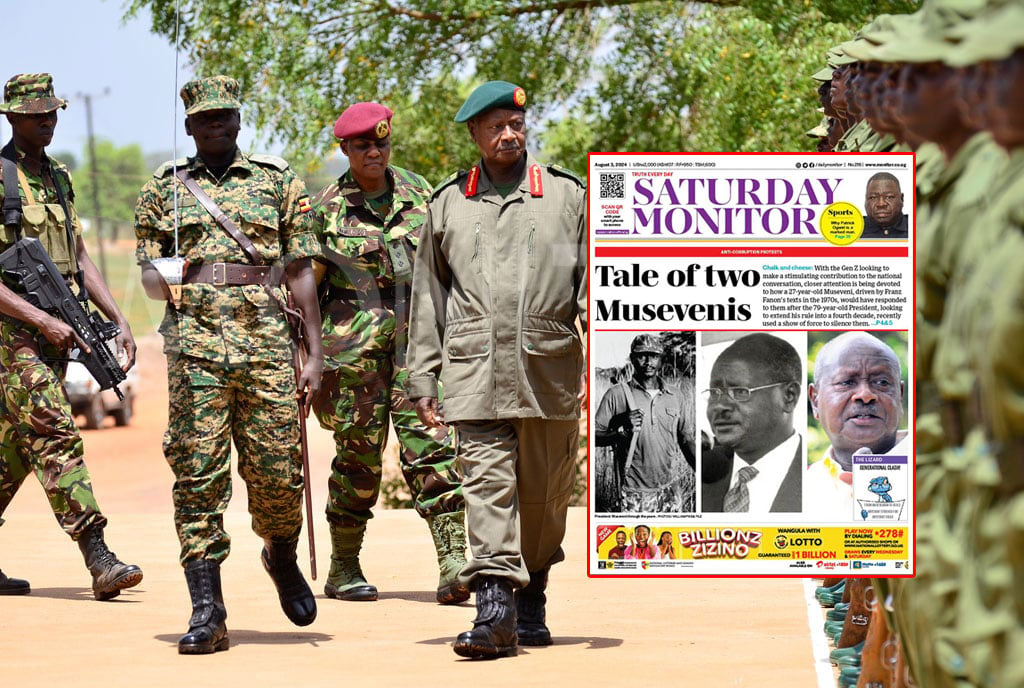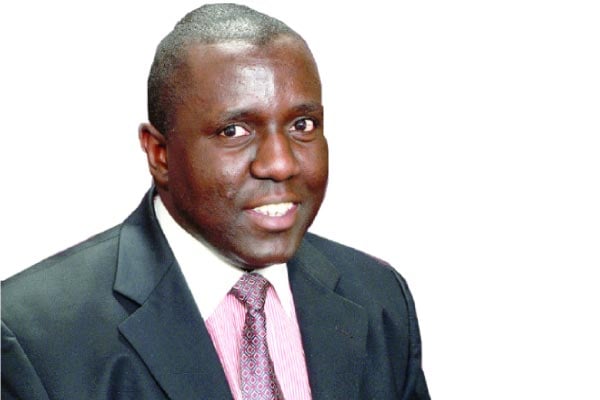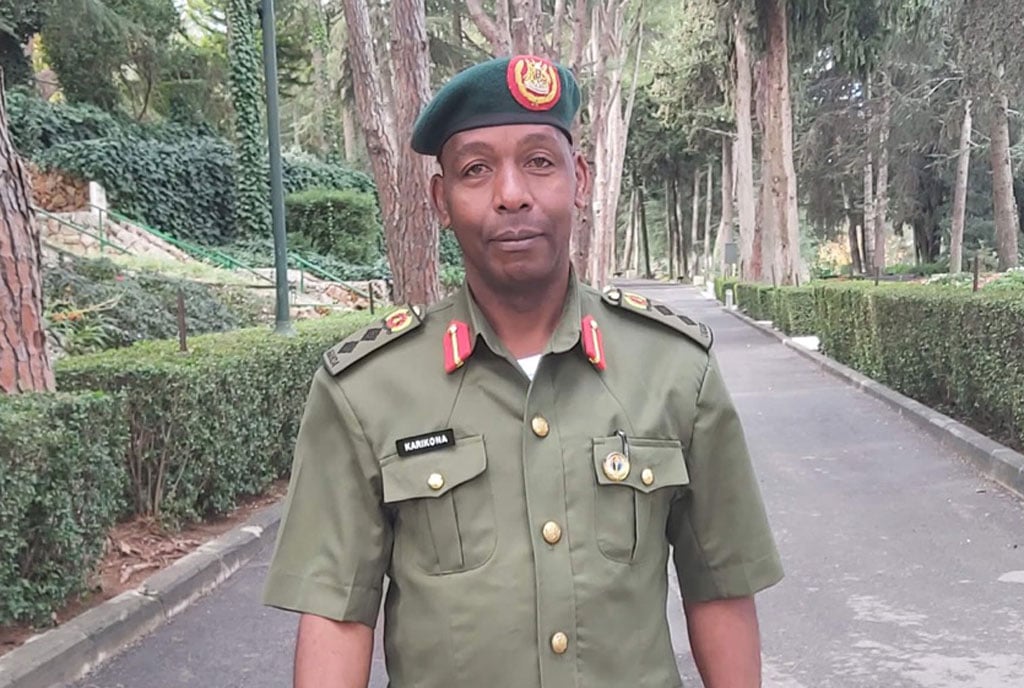
Praise Aloikin Opoloje is arrested during the march to Parliament demonstration on July 23. PHOTO | ISAAC KASAMANI
At the height of an intense scrutiny of Parliament in March, amid criticisms over alleged corruption, nepotism and extravagance, Praise Aloikin Opoloje boiled with anger.
“How do people see these things and feel comfortable?” the student of law at Makerere University, told the Monitor during an August 4 interview.
The claims against Parliament were brought to light by a team from Agora Discourse, a digital public space that promotes public accountability, human rights, and social justice. The drive was led by citizens, among them journalist-cum lawyer and social justice activist Agather Atuhaire, and university don and satirist Jimmy Spire Ssentongo.
The claims unsettled the 25-year-old who said she has always been passionate about social justice and human rights.
So, when a section of Ugandans on social media spaces began discussing and making suggestions of organising a march to Parliament to protest goings on at the House, Opoloje was among the sections of Ugandans who were all in for it.
“I was angry at the systems in this country. People who have stolen from Ugandans and have publicly confessed are moving freely in our midst. This level of impunity was what gave me a push to march,” Opoloje says.
As the discussions around the march gained momentum online, she got to know some Ugandans, mostly the youth, who were keen on the demonstration.
Contacts were exchanged for streamlining other activities. Opoloje later became part of the team that wrote to the police declaring intentions of holding a peaceful protest, a move she said is constitutionally guaranteed.
In their alert, the team informed security agencies they would march in protest from the Railway Grounds, opposite Victoria University in Kampala, to Parliament.
But during a press conference in Kampala on July 22, the police vowed to block the youth-led demonstrations.
Undeterred, the avowed protesters stood their ground and proceeded with their plans on July 23, the day of the march.
Opoloje did not inform her family of her plans, but as the media began reporting about the anticipated march, her name popped up as one of the participants. But her family, although scared, respected her decision.
Arrest and road to prison
Because of the heavy police and military deployment, the plans the youth had crafted did not go as planned.
They were scattered in different parts of Kampala City as a way to beat the heavy deployment and access the Parliament to put their grievances across.
Early in the morning, Opoloje went to the basement of Garden City Mall, in Kampala, where she teamed up with other participants. Police later swooped on them and made a few arrests. With seven others, Opoloje managed to get away to access Siad Barre Avenue, near the Parliament Building.
Waving a few placards in the air, they walked a few metres before opting to sit on the tarmac as the armed men approached and they continued to chant: “Anita must go!”
Anita Among is the Speaker of Parliament, who has dismissed all the claims as a political witch-hunt by self-seeking local and foreign interests.
Soon, the protesters were encircled by the armed security personnel who forced them up before bundling them into a nearby police van.
“I expected to be abducted or shot, but luckily none of those incidents happened. I am glad I did not die that day,” she says.
They were then whisked off to Kampala Central Police Station (CPS) where Opoloje refused to make any statement. She argued she could not write one in the absence of a lawyer.
“I was beaten, slapped, kicked, and pressed against the wall for refusing to write a statement. The police officers finally let me be after I resolutely stood my ground,” she says.
From CPS, the youth were taken to Buganda Road Court where they were charged with being a common nuisance before being remanded to prison until July 31.
Depressions of prison life
Opoloje, a first-time protester, was experiencing prison life for the first time.
New prison arrivals are taken through body check and their details captured for records.
“I stripped before a female guard, who also told me to squat and cough. That whole procedure was degrading. After being checked, I was then handed a yellow uniform to wear,” she says.
On days when inmates receive visitors, they still have to be body-checked by the female guards before and after seeing their guests.
Opoloje says one time, a female guard, while laughing mockingly, said to her, ‘Even this small one! You close your body for us. I don’t want to see your blood [she was on her period].’
The comments, Opoloje says, were bitingly hurtful and unpleasant.
Staying in Luzira is difficult, Opoloje says. Every inmate has to follow a routine and stick to the rules. But there is a catch. No one tells you what to do.
“You figure things out by yourself and if you get caught in the wrong, you face dire consequences from the authorities. The system is constantly against you,” she says.
Waking up is at 5am, breakfast is served at 7am [porridge without sugar], lunch at 11am and supper is served by 2pm. The main course is boiled beans and posho. Inmates have to also frequently adhere to calls to run back to their rooms to be head-counted.
On July 31, she was released on bail and will return to court on September 5. The experience, Opoloje says, has made her more resilient to fight what she terms as the injustice in Uganda.
No dialogue
On allegations that Western donors are funding the youth, Opoloje laughs it off.
“How big is the budget of the people funding all of us? These people must have a lot of money to pay Ugandans who are addressing grievances in the country,” she says. “Instead of doing introspection on the issues we are raising because they are genuine, they are instead redirecting the blame onto foreign funding. The government is suggesting that rather than protest; we should instead dialogue and have conversations. But no, there cannot be a dialogue on corruption and theft,” she avers.
What prisons, police authorities say
“I caution every Ugandan to do everything possible to avoid coming here [prison]. You come here with the mentality that this is an hotel, of course, you will be shocked. This is a prison. The conditions here are very different from those of the outside world. The body checks are to ascertain whether you are either male or female,” Mr Frank Baine, spokesperson of Uganda Prisons Service.
“Cases of beatings [directed at suspects] should be raised as complaints to the police professional standards unit,” Mr Kituuma Rusoke, the spokesperson of Uganda Police Force.









